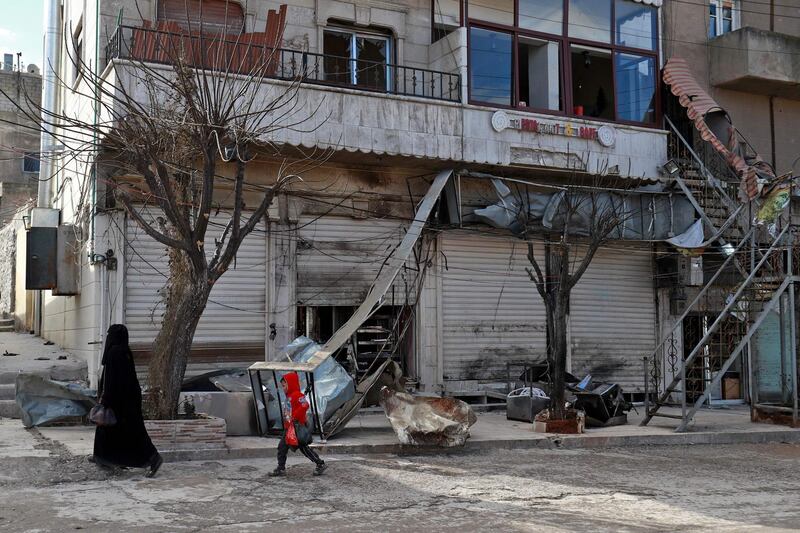Hours after four American servicemen and more than a dozen civilians were killed in an ISIS attack in the northern Syrian city of Manbij, US Vice President Mike Pence addressed a gathering of US ambassadors in Washington. "We are bringing our troops home," he said, praising President Donald Trump for his leadership in Syria. "The caliphate has crumbled, and ISIS has been defeated."
Mr Pence's remarks are the latest in a series of conflicting statements from senior US officials – including the president himself – since Mr Trump announced in December that all 2,000 US troops would soon leave Syria. But as alarmed European allies and US military leaders remarked at the time, ISIS has not been defeated. The blast in Manbij, the primary theatre of US activity in Syria and a proxy for the battle over the country's future, is proof of that.
While the lives of US troops do not hold greater value than those of thousands of innocent Syrians, one cannot escape the weighty political implications of this attack, the worst since American troops arrived in 2015.
Not only can ISIS still spill blood, the group also demonstrated its tactical acumen by hitting Manbij, a flashpoint in the eight-year war. While any other US administration would now strike the militants, Mr Trump could well use it to justify his troop departure.
And with the US gone, the worst excesses of regional powers, notably Turkey and Russia, will foster the type of environment in which ISIS thrives.
A concerted international effort retook much of ISIS's territory in Iraq and Syria, but those able to withdraw quietly from Raqqa were able to reform in pockets across the region, from Libya to Afghanistan. Meanwhile new footage of the terrorist group's leader, Abu Bakr Al Baghdadi whose whereabouts are still unknown, reportedly emerged last August. Robust attempts to dismantle the group must continue in earnest. But it is plain for all to see that Mr Trump's ill-conceived troop withdrawal will thwart that goal.
Key to the fight against ISIS was the US-backed Kurdish YPG, which fought bravely to wrestle communities from the militants' hands and now holds Manbij. Undoubtedly the YPG's ties to the militant PKK raise concerns however their role in fighting ISIS should not be undermined. Today, the YPG finds itself in the sights of Turkey, which regards it as a terrorist organisation.
Until now, the presence of American personnel has acted as a shield, but with the US set to withdraw, Turkish backed Syrian rebels are reportedly awaiting “zero hour” to storm Manbij. Yesterday’s attack will add fuel to Turkish president Recep Tayyip Erdogan’s claims that the YPG cannot bring security to its territories – and a Turkish assault is bound to follow.
The Trump administration might be drawn to a reduced role in the Middle East, but it must understand that doing so has grave consequences. A re-formed ISIS, a threatened Kurdish minority and a bellicose Turkey should all concern Mr Trump. Instead, the US offers only a power vacuum, which various competing actors are racing to fill.





